Afghans endure 'Jungle' squalor in hope of better life
- Published
Many children are alone in the Calais camp known as the Jungle
A lilting Afghan melody wafts from a makeshift bakery on the muddy lane snaking through the shanty town in the French port city of Calais.
"Go on your journey and be assured," is its comforting refrain. Carried with the inviting aroma of freshly baked naan bread, it transports you momentarily to Afghanistan.
But Afghans drawn to this corner of the squalid camp they call "the Jungle" are exhausted and anxious on the last leg of a dangerous journey to Britain, which lies across the Channel. For some, it is the second time round.
"It's really tough now," sighs 22-year-old Javed Horia who first came to Calais nine years ago as a young teenager desperate to find a new future in the UK. "There are many more fences."
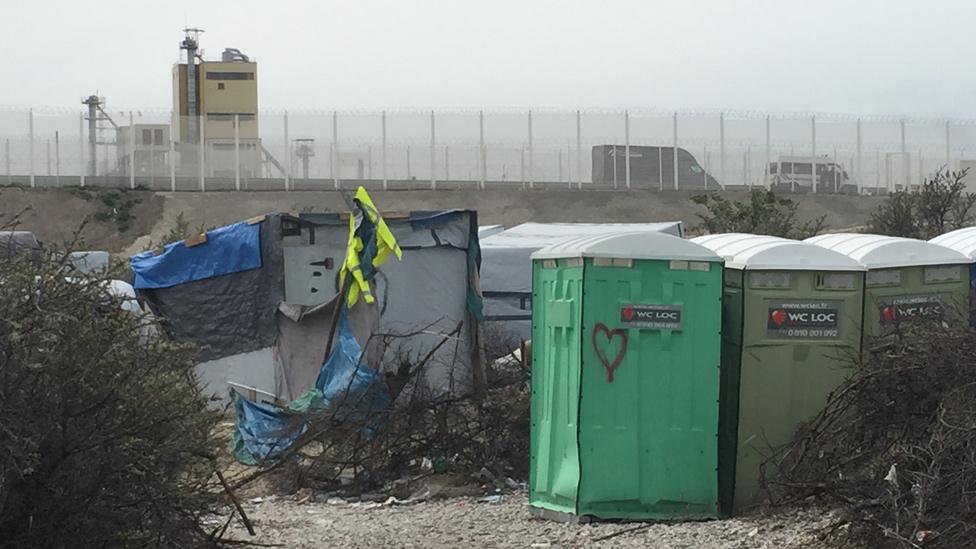
Migrants endure grim conditions in Calais in the hope of reaching the UK
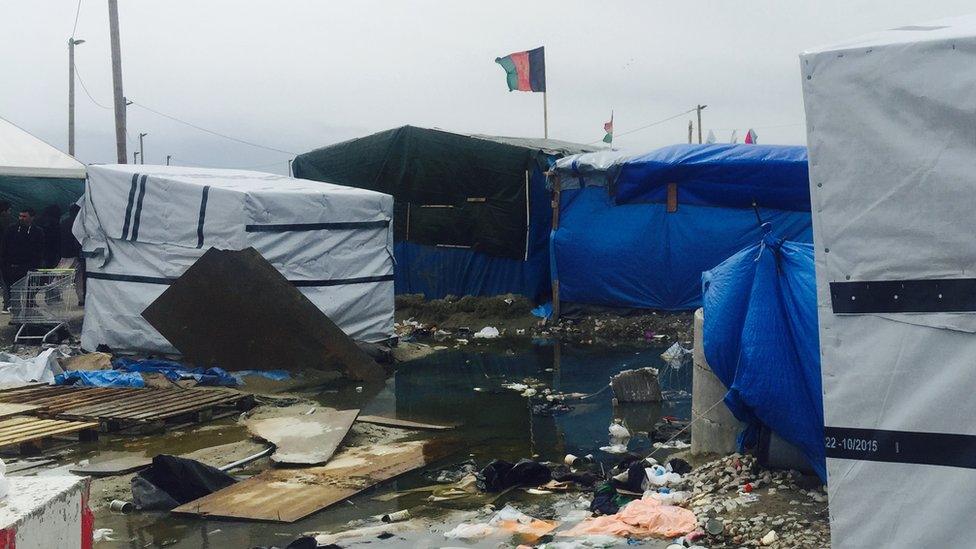
A forlorn Afghan flag flutters above the camp squalor
Syria's punishing conflict is now dominating Europe's refugee crisis but more and more young Afghans are also fleeing a country racked by hardship and war in the hope of a better, safer life elsewhere.
As we stand outside the bread shop, we can see into an elongated shack known as the "Kids' Cafe" which serves as a refuge for Afghan children making this perilous journey on their own. Families send their sons with smugglers and a single goal: reach relatives in Britain, whatever it takes.
"It's a nightmare," reflects Javed who remembers how frightening it was a decade ago when a smugglers' "mafia armed with knives and pistols forced us into lorries refrigerators and boxes".
But his cautionary tale is not deterring other young travellers.
When Javed arrived in Britain in 2007, he was placed in foster care with a British family who brought him him up like one of their own. But when he reached the age of 18, he was deported.
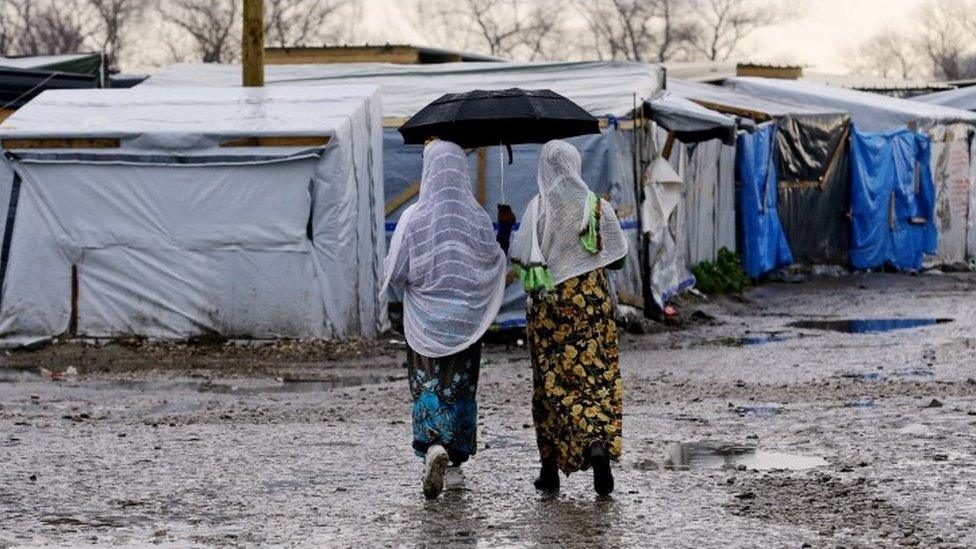
Britain wants migrants and refugees to stay in France
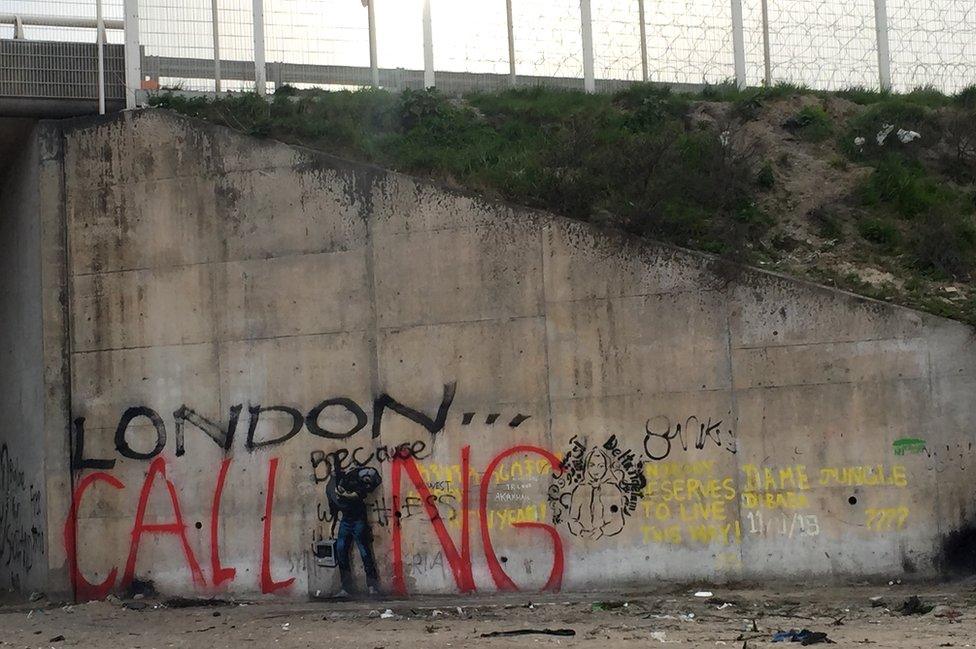
Graffiti expresses the London dream of migrants in Calais
British Home Office officials recently confirmed that nearly 3,000 child asylum seekers were sent back to conflict-torn countries in the past decade, including many Afghans sent on charter planes to Kabul.
"I tried really hard to learn English, go to school, and build my new life in Britain," Javed says with palpable frustration. "But the authorities didn't believe my story that I'd face problems if I went home."
He stayed in Kabul for a month with a neighbour since both his parents are dead. Then, convinced he had "no life" there, he embarked again on a smuggler's route through Europe which brought him back to the grim Calais encampment.
In the "Kid's Cafe" across the muddy lane, there is a lively babble among Afghan boys playing pool and video games. They straggle in at all hours for a plate of steaming rice and beans, served up the way they like it.
But there are the tell-tale signs of a life not fit for children: head bandages on a boy beaten up in the camp; ragged dirty clothes; scratched and bruised hands. Most of all, there is the sad vacant stare of children as young as eight which betrays their fear and fatigue.
"Is this what life should be like?" demands a 13-year-old who, like all the children, does not want his real name used. He suggests the name Subhanullah.
"There are no showers, our clothes are dirty, and our bodies are itching all the time," he laments. "No one cares if we are treated like humans or animals."
Night after night, they run the gauntlet of trying to elude French police and hide inside lorries or under trains.
"We try to get in the lorries but police use pepper spray and beat us like animals," Subhanullah complains of measures used by French police who are under pressure to seal the Channel crossing. They deny using unjustified force.
Watching over the boys in the cafe is an older Afghan, Sikander Nuristani, who arrived in France last year and decided to stay and establish this rare haven.
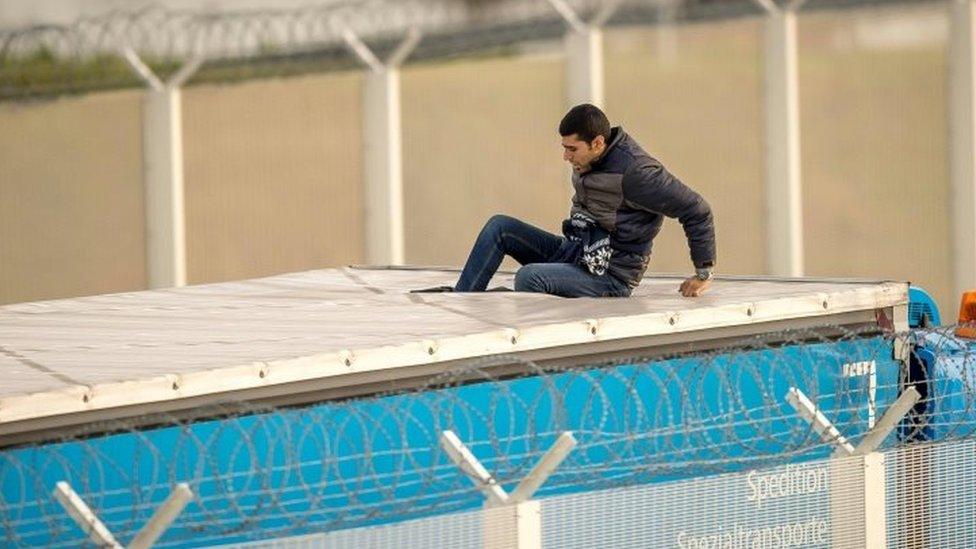
Javed's cautionary tale is not deterring other young travellers from trying to reach the UK
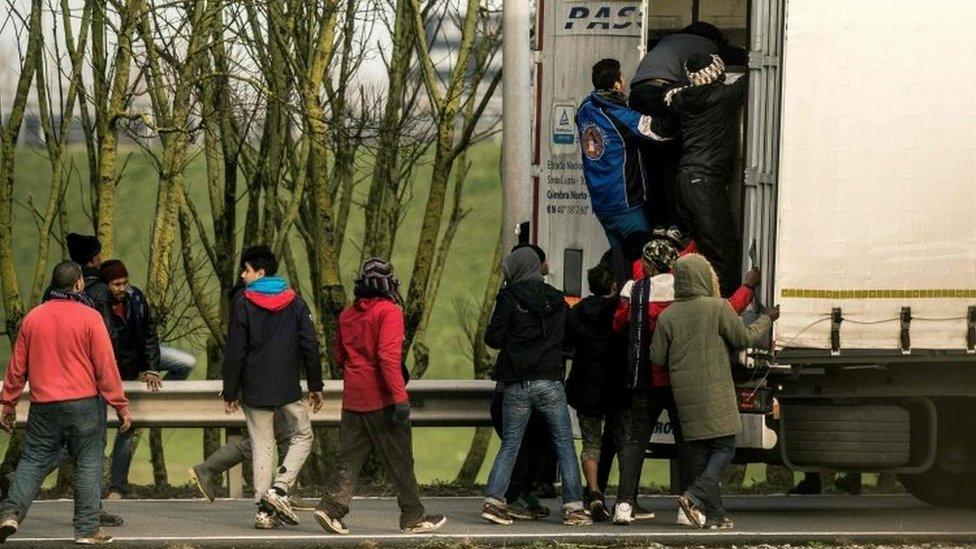
Only a small number succeed in reaching the UK
"The Jungle is not for humans," Sikander says, using the camp's most recognised name. "We need to try to stop young boys from doing wrong things by connecting with them in ways they understand."
Cigarettes and drugs are widely available and there are reports of violence and abuse.
I ask Javed what advice he gives to the Afghan children he meets here. "I tell them to seek asylum in France since, at their age, they can learn another language and adapt to a new culture."
But he understands their single-minded focus on getting to Britain. He still has not lost his. And he is not the only Afghan I meet here who is trying for a second time.
British officials we met on their way out of Calais say they also urge young Afghans to apply to settle in France.
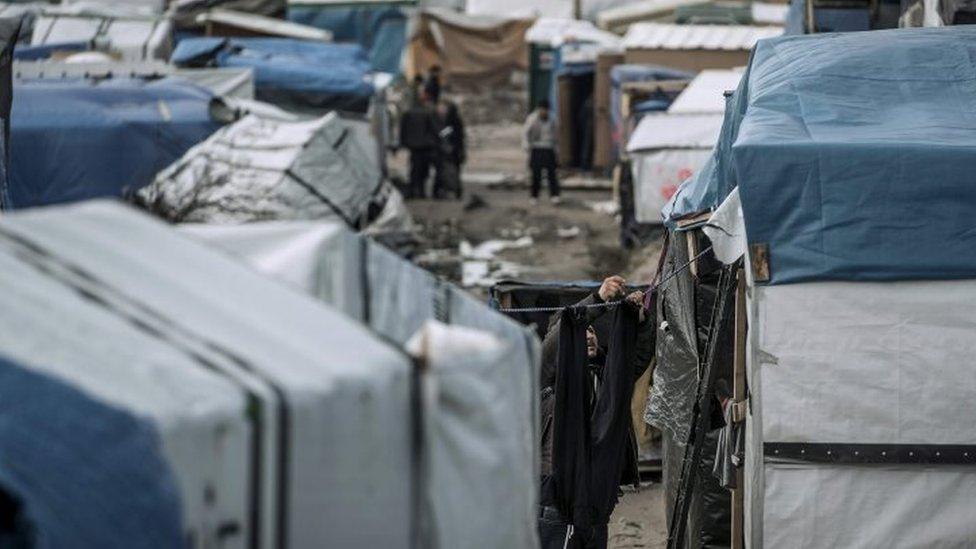
Inhabitants of "the Jungle" say conditions in the camp are harsh
It's a hard sell. For many young Afghans, all they know of France is the harsh conditions of Calais.
"It may be hard for us to comprehend but all these boys can think about is a place where there's family," says Iona Laurence of the British charity Citizens UK.
She is helping asylum seekers in Calais pursue a legal route to the UK under the EU treaty known as Dublin III which provides for family re-unification.
Only a small number succeed on this route and Syrians are now taking priority. And many young Afghans do not have all the necessary documents.
I watch a conversation as a British volunteer happily announces that a 10-year-old Afghan who had spent time at their youth centre has just managed to slip into Britain. He hid inside a tyre.
The eyes of a sullen 15-year-old Afghan sitting next to me immediately brighten.
He has been struggling for seven months to reach Britain. It shows. But, for him, here was affirmation that he just has to keep trying.